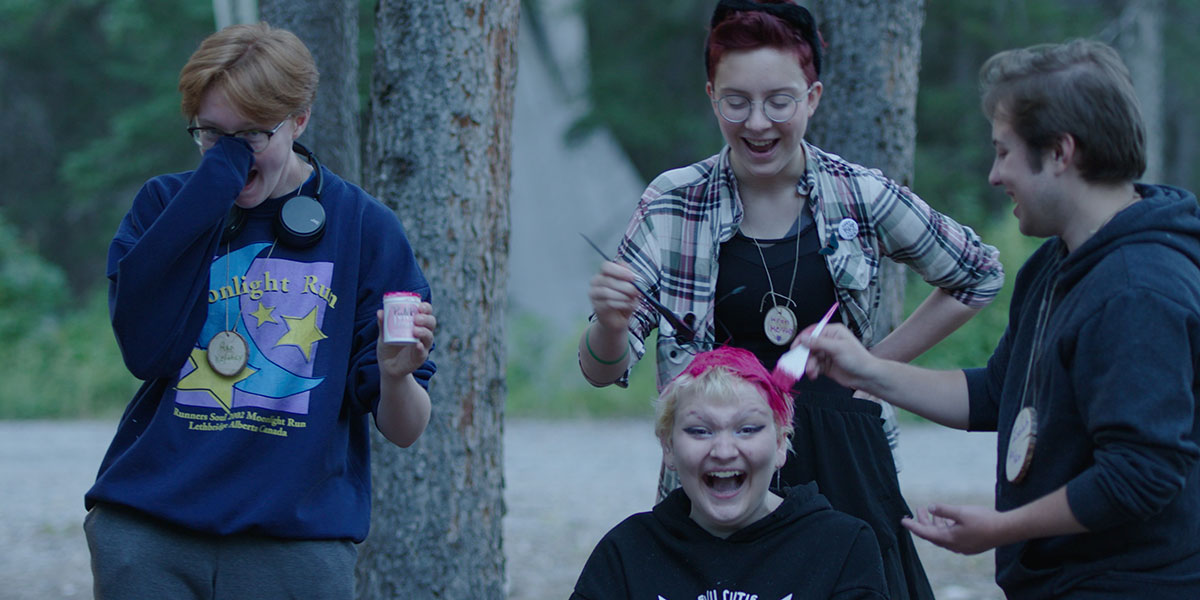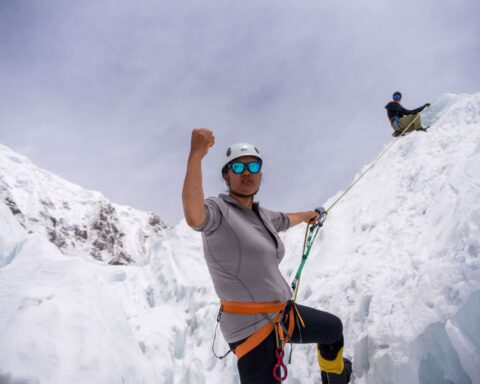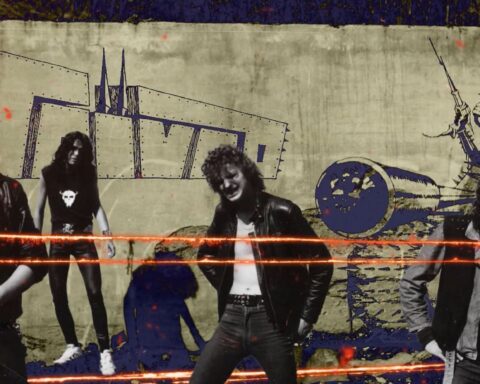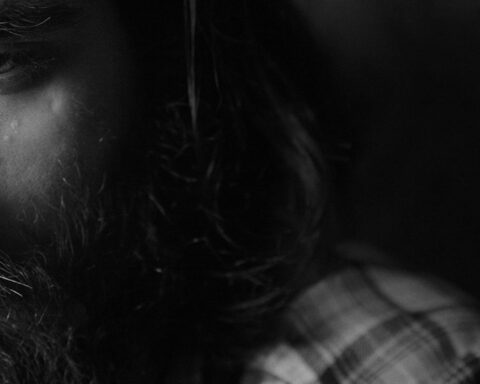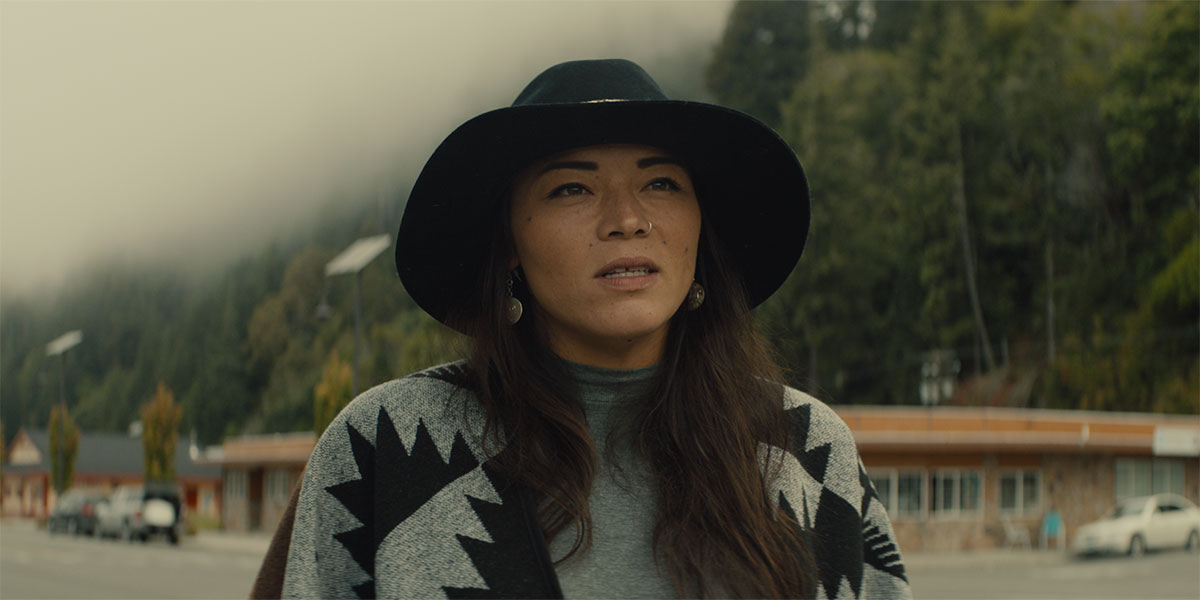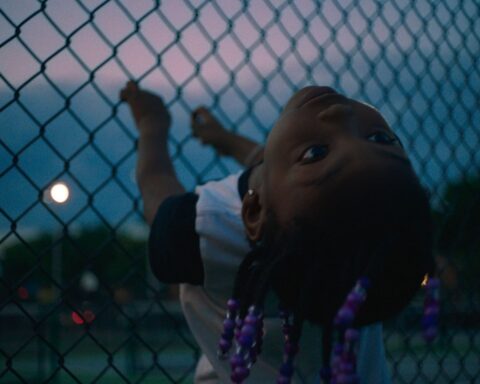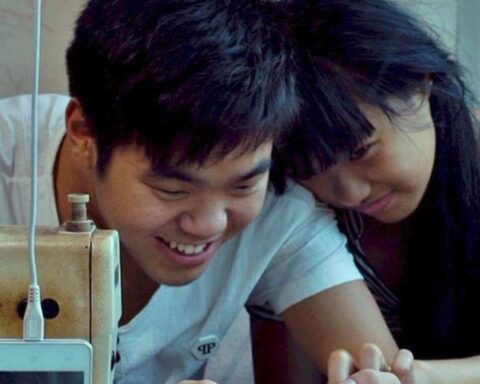With a revived wave of anti-LGBTQ+ legislation across the United States and Canada, queer and trans youth are facing unprecedented levels of scrutiny and dehumanization. Jen Markowitz doesn’t want viewers to lose sight of a central tenet of queer culture: collective joy. In Summer Qamp, their first feature-length documentary, Markowitz brings viewers to Alberta’s Camp fYrefly: an idyllic getaway focused on offering queer and trans youth the dignity, self-determination, and community they may otherwise lack in their home province.
The documentary takes place almost exclusively at the camp, following several teens as they navigate questions of sexuality, gender-identity, and belonging. Through the week-long camp experience, they find solace and affirmation in sharing their experiences navigating family, high school, and their small towns with one another. Cinematographer Lulu Wei acts effectively as a fly on the wall, capturing moments of pure joy between the young people and giving viewers a window into the true comfortability they find with one another.
Markowitz’s long resume includes casting and directing work in both fiction and non-fiction filmmaking. Their work as a writer and senior producer on Canada’s Drag Race earned them three Canadian Screen Awards.
In Summer Qamp, Markowitz offers a through-line to the humanity of these young people. They show the kids of Camp fYrefly navigating the highs and lows of adolescence that any teenager may face, steadfastly highlighting the distinct barriers queer and trans youth face in their teen years. With Summer Qamp comes a wholesome and affirming representation of what is available to queer youth when they are granted a true sense of safety.
POV sat down with Jen Markowitz in advance of the world premiere of Summer Qamp at the Toronto International Film Festival.
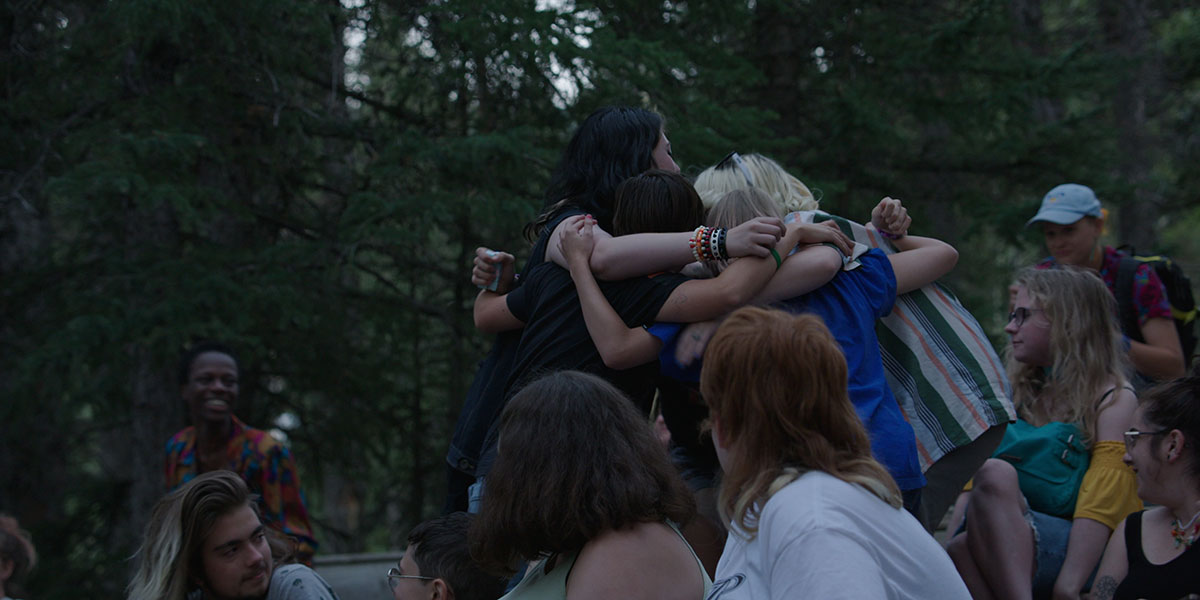
POV: Ry Pembroke
JM: Jen Markowitz
This interview has been edited for brevity and clarity.
POV: How did you first encounter Camp fYrefly?
JM: Throughout my career, I’ve been really lucky to work with an amazing group of executive producers. Tegan and Sara are affiliated with Camp fYrefly. They made the initial introductions with the producers with whom I’m connected and pitched the film. Once the ball got rolling on figuring out when and how they were going to shoot this film, and after that all happened, I was brought on board. Once I hit the ground, I was 100% in there, getting to know the kids in the camp and figuring out how we were going to do this.
POV: Did you have any connection to Alberta before Summer Qamp?
JM: I didn’t. I’m from Toronto, so I know what I know of Alberta from visiting a few times and from reading the news. I was actually expecting it to be a lot different than it was, but there’s a huge, very mobilized queer community there. I had no idea!
POV: What was it like to enter this space and build trust with the youth and their parents?
JM: It was intimidating at first. I never would have trusted someone like me as a kid. As a parent, I imagine they had no reason to trust me either. So I approached it very casually, with a lot of openness, I let them know right off the bat that I wasn’t going to be hammering in on their traumas in my storytelling. I also was not going to be sneaking around trying to grab little moments that they didn’t know about. I told them that they would always know when the camera was rolling, they would always know exactly what story I was trying to tell, and we would figure out together how to tell it. I spent three months prior to filming on Zoom all day, every day, with kids and their parents. By the time we got to camp, I felt like we knew each other pretty well and that the trust was almost all there. I think all it took was for them to see me in the camp environment to see that I really am part of this community to add in that final bit of trust.
POV: You have a ton of experience directing and story producing for reality TV (Canada’s Drag Race, Big Brother Canada, Shine True). How do you feel this work informed your ability to approach directing for documentary film?
JM: People have asked me what my dream project is, and this is it. I’ve made it. So now I need to figure out a second option. I made my way up in the industry through the jobs that were offered to me. I’m the type of person to take every job I could get. So I spent my early career directing things very much in the lifestyle realm, and it was a great training ground. It kind of built me to approach every set that I walk into without any expectations.
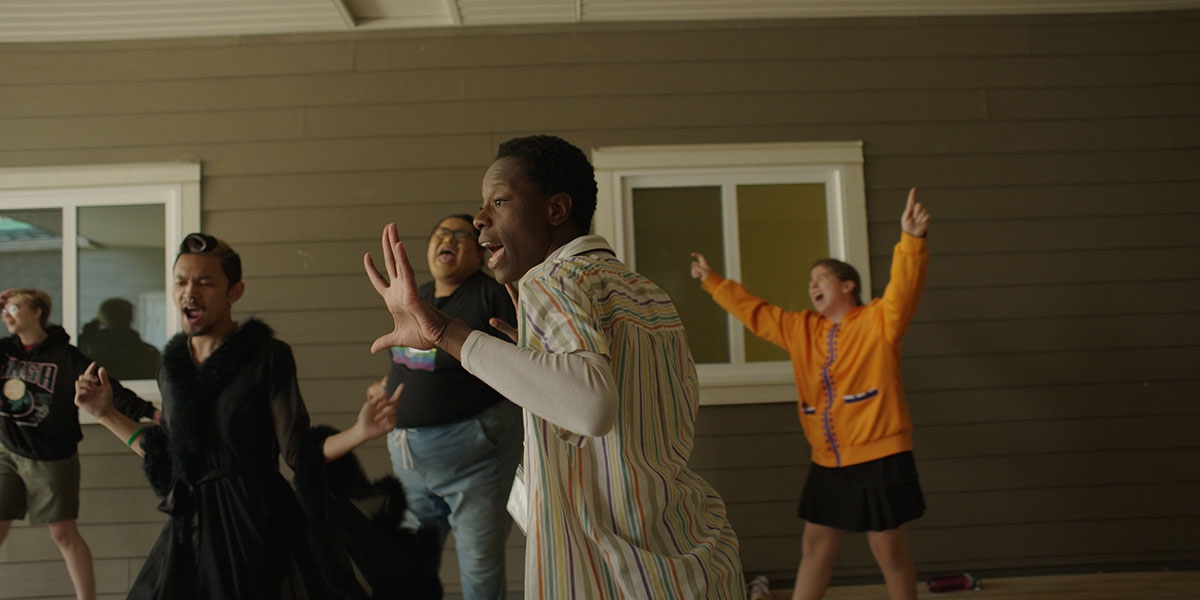
POV: You’ve done a good amount of work in queer reality TV with Canada’s Drag Race. What makes queer documentary storytelling different?
JM: When you get to understand queerness through documentary portrayals, you get a cleaner look at what the queer experience is actually like. Documentaries are often made with very small teams, and right now in the world queer documentaries are pretty much solely made by queer people. When you look at scripted or competition reality TV, there’s often a chain of command, only part of which is made up of queer people. We’re slowly gaining ground in those industries. But I feel queer stories can be met with a lack of understanding by decision-makers who are not part of the community. It’s not that they are stereotyping us or meaning harm to us, but just by virtue of the fact that they did not grow up – like us certain little tidbits of queer messaging are liable to be trimmed out here and there without them knowing it.
POV: Your work on Canada’s Drag Race seems to be a turning point in being able to focus on queer media. How did that turn feel?
JM: Canada’s Drag Race was the first time that I was given free rein to just be as humongously queer as I could be. Through writing the acting challenges and the singing challenges, and overseeing a lot of the edit: it was the first time in my career that I wasn’t told that we should be sculpting the story so as to not make it too far over the limit for viewers unfamiliar with the queer community. It was a complete playground, I don’t think I ever laughed so hard, and I don’t think I’ve ever had so much fun. It was one of the best experiences of my life.
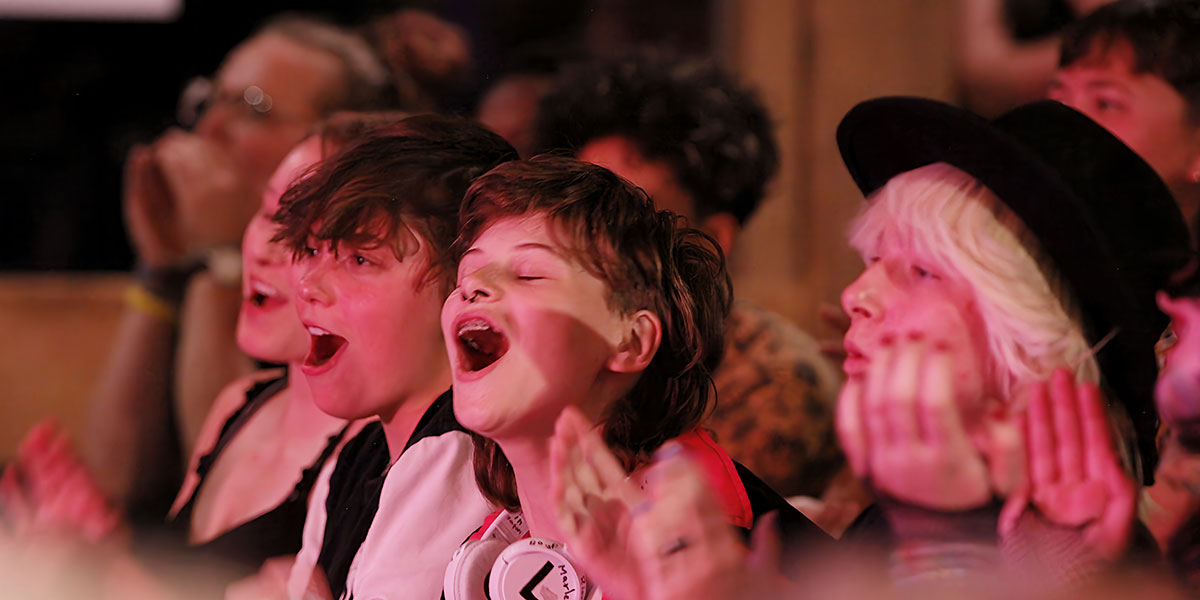
POV: As far as the viewership goes for Summer Qamp, how do you think an audience less familiar with the queer community will react to learning so much from the young people featured in the film?
JM: If an older cross section of viewers outside the queer community learns something from the film, I think that’s a great bonus. But what I’m hoping they’ll see is just a bunch of teens acting like teens. I hope they see the humanity in these kids. They’re just normal teenagers doing normal things. In fact, they’re way more wholesome than some of the teens in queer films I saw when I was growing up.
POV: What considerations did you have for the level of visibility that this film would bring to these young people?
JM: We had a system in place at camp for kids who were okay and not okay with being on camera. Their anonymity was really important to us. Over and above that, we don’t mention their last names in the credits and we don’t show exactly where they live. We really wanted to make sure that they were safe. Putting your face on camera, you are putting yourself out into the world. There’s only so much that I can do on my end. It was very much an ongoing conversation between myself, Michelle Mama, who was the executive producer on set, and the kids and their parents about things they were and were not comfortable with in terms of anonymity.
POV: Have you had a chance to follow up with any of them?
JM: I just got back from camp, and I’m still in touch with pretty much all of them. We had a Zoom screening to show it to them before the world got their eyes on it. I’m in good touch with them and their parents as well.
POV: Do you think you’ll go back in the future?
JM: 100%. Pam, the camp director invited me back again. There is no way I’m ever making plans for the last week of August from now until the end of my life, I’ll be spending it at camp!




